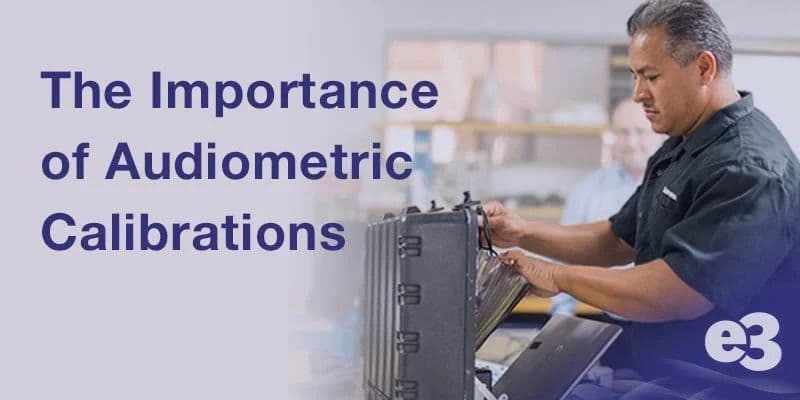The Importance of Audiometric Calibrations

Your audiometer is probably the single most important piece of equipment in your practice and that’s why you MUST have your equipment calibrated on a regular basis. This ensures that the hearing level your audiometer produces complies with the strict standards that are set by American National Standards Institute (ANSI) or the International Electrotechnical Commission (IEC) product manufacturing standards for hearing thresholds.
In order for your equipment to be calibrated to the highest standard, only a well trained and qualified professional technician should do the calibration annually, preferably one certified by NASED.
Having your audiology equipment calibrated yearly may seem like an inconvenient task, but it’s an extremely necessary and important one. It’s the kind of thing you want to put on your calendar and be sure to make an appointment a couple of months prior to the year anniversary. Every test result must be based on the most accurate signal that can be obtained, so having at least an annual equipment calibration should be mandatory.
So, what causes audiometers to become “uncalibrated”?
Different factors such as age of the equipment, normal wear and tear, frequency of use, exposure to extreme temperatures or moisture, and handling and storage of the audiometer, can cause the instrument to become uncalibrated. However, it is often ertain parts such as cables, jacks, or transducers that could have an adverse effect on the accuracy of test results as well. This is why the manufacturers suggest and many governing agencies require annual calibrations of audiometric equipment.
Keep this in mind: An uncalibrated audiometer could lead to inaccurate test results
Accuracy is of the utmost importance when determining treatment plans for your patients that are based on hearing test results. Diagnoses are made based on equipment as well as clinical acumen, so it’s important to ensure equipment accuracy. Inaccurate results can trigger a missed diagnosis, treatment that may be unnecessary, and the possibility of causing further damage to your patients’ hearing.
Review your annual practice and equipment care procedures to make certain you are in compliance with ANSI standards for calibration. Equipment problems that are detected and resolved before testing begins will avoid the consequences of having to follow-up on incorrect results and may require bringing patients back in for retesting. As a hearing healthcare practitioner, you must be confident in the results of the tests you administer.
Important patient care decisions are made based on those results.
At e3 Diagnostics, all of our technicians are NASED certified, which means they have been specially trained and are highly proficient in audiometric equipment repairs and calibration.E3 makes it easy for you, by making sure that your equipment is accurate so you are assured that your testing is accurate. We take care of certifying so you can take care of your patients. Call us to set up your calibration appointment.
